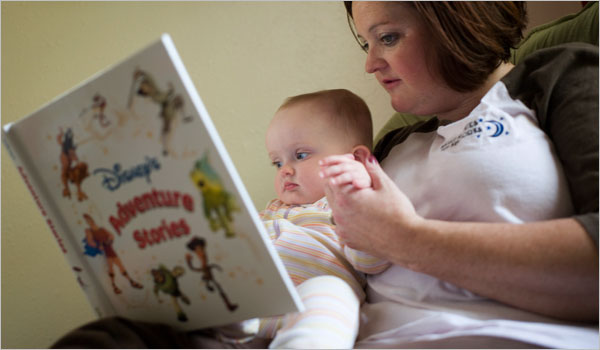This article ran in the New York Times April 7, 2007

When I brought my second baby home, I felt overwhelmed. I had trouble connecting with him, feeling blank. One day when I ran out of fresh diapers, I felt paralyzed. This was before disposable diapers and clothes dryers and the diapers were clean, but were hanging on the clothesline in the back yard. I laid on my bed,thinking,“This is how people feel when they’re depressed.” I knew I had a choice. I could give up, or go out there- a blustery April day, and pull a diaper off the line. I got the diaper that day, but It wasn’t until two weeks later when I saw a full page picture of a baby’s heart in a Time magazine add, that the numbness melted, and thankfully, it didn’t return.
But for 9% to 10% of pregnant and postpartum Moms, it’s more serious.
The medical industry is now recommending that pregnant women and new moms need special attention in screening for depression, according to the U.S Preventive Services Task Force. This panel was appointed by the Department of Health and Human Services, and now formally supports that advice.This is a first of it’s kind call for doctors to routinely screen women either pregnant or who have already given birth. There are extra hormones working in women during these times and a lack of sleep can trigger depression. Dr. Eleanor Martinez, M.D., told ABC7 News, “By making this recommendation we are putting it up in the front and saying, ‘Listen, this is a diagnosis. This is a disease. We need to embrace it like anything else.’”
Evidence shows that new mothers can be accurately diagnosed and successfully treated with the help of alert pediatricians, family doctors and OBGYNs. Not taking depression seriously is harmful to both mother and the baby. Research shows that untreated moms have babies and toddlers, with sleeping problems and take longer to be comforted. Until now, depression in these new mothers has been under recognized and under treated. A routine test can be given to the mom while she is waiting for her appointment. It will tell the doctor if she needs further screening for depression.
Treatments that work are “talk therapy” or drug therapy, or a combination on them are most successful. However, part of the problem is motivating a depressed mom to keep trying while the right treatment starts working. Plus there is a small risk of miscarriage and preterm birth leaving talk therapy as the best choice, and a nursing mom will be hesitant to take any drug.
Legislation in Congress may authorize Washington to fund screening and treatment for moms with babies one year and under, but as for now, there is none.
If you’re pregnant or a new mom the questions a doctor may ask to determine if you are at risk may be:
“Have you felt down a lot in the last few weeks?
How often have you felt tired or were unable to concentrate?”
Anyone working with a new mother, family members, friends, or a nanny should be aware of symptoms. Mild depression, anxiety and mood swings are common in new mothers and this is called Baby Blues. This is normal in new moms and usually fades away after the second week. The entire process of giving birth is exhausting, hormones are raging, sleep can be sketchy. Most moms go through this.
How is postpartum depression different? It brings more severe emotions that don’t go away, with thoughts of suicide, or feeling like one is unable to care for the baby. The Edinburgh Postnatal Depression Scale is a set of 10 questions to determine if medical help is indicated.
I got a call one Sunday morning from a distraught Dad, who reported that his wife had come out of the bedroom stating that she had thought of suicide three times that morning. The baby was 5 days old, and we were able to find a Newborn Specialist for this family for a few weeks to get up at night with the baby and do all the night feedings so the parents could get their much needed sleep.
Beth Weise





